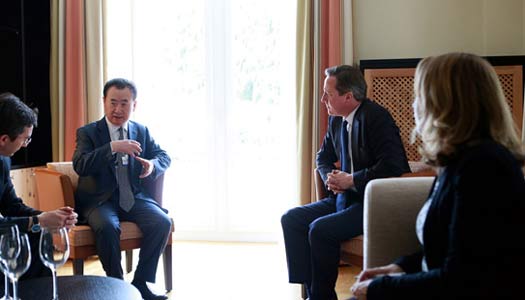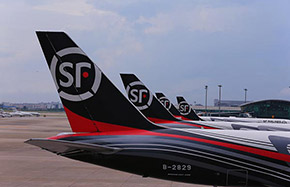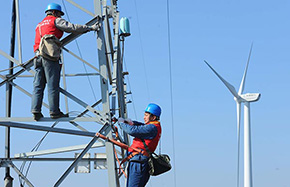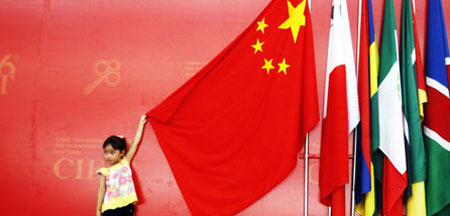
Sinomach seeks to invest more abroad
Updated: 2013-04-09 05:47Zheng Chao, former commercial counselor at the Department of Outward Investment and Economic Cooperation at the Ministry of Commerce, once told China Daily that as Chinese firms became more capable, and desire for globalization and competition in the global contracting market becomes fiercer, Chinese contractors are diversifying from merely working on contract engineering projects to expanding investment deals and seeking engineering contract project management programs.
More investment will help domestic contractors get more engineering deals abroad," said Zheng.
By the end of 2012, China's cumulative signed external contract engineering projects were valued at $998.1 billion, according to the ministry. In 2012, the nation's newly signed contracts grew 10 percent year-on-year to $156.5 billion.
Ren Hongpeng, vice-president of China Road and Bridge Corp, said the company's long-term strategy is to shift into investment, and such a transformation is unavoidable, especially for Chinese contractors, although contracting for engineering projects is still its traditional business.
According to Xu from Sinomach, the company mainly targets energy and infrastructure projects in developing countries, led by Southeast Asian nations, and manufacturing deals in developed markets through mergers and acquisitions.
In 2012, Sinomach's sales reached 221.4 billion yuan, and profits were 8.5 billion yuan, said Xu.
The company is aiming for sales revenue of 500-600 billion yuan by the end of 2020, with profits reaching 25-30 billion yuan.
Xu said the company has an ambitious plan to invest abroad, without elaborating on the budget, and he attributes this to its aspirations to improve its technology and research capabilities and expand its market presence overseas.
"China still lags far behind its Western counterparts in many high-tech manufacturing industries, but we can learn from them, especially the European countries including Germany and France," he said.
As part of its 12th Five-Year Plan (2011-15), the central government has pledged to add investment to innovation and industrial upgrading. While China became the world's largest exporter and manufacturer in 2009, it is challenged by industrial overcapacity and shrinking global demand for Chinese goods.
But developed countries and regions, including the United States and European Union, have placed restrictions on shipments of a wide range of high-tech goods to China.
"Partnering with companies owning advanced technology in the West provides us with a shortcut and easier access to improve technology," said Xu.
"We have the capital they need, and also, as the Chinese market is a priority for many of our Western counterparts, partnerships can help them expand market share in China."
The Government Work Report of 2011 pointed out that China will encourage enterprises of all types to expand their global presence, facilitate brands and enhance technological competitiveness through mergers and acquisitions in manufacturing, services, infrastructure and energy.
The report this year also said China will adopt a more proactive opening-up policy and improve relevant rules and regulations to provide Chinese firms looking to go abroad with a more favorable environment.
During the past three to four years, more Chinese enterprises have become increasingly aggressive in expanding to the West, and European countries in particular.
In 2011, China's ODI in the European Union surged by 94.1 percent to $4.28 billion.
According to Shi Mingde, Chinese ambassador to Germany, China's ODI in Germany gained by more than 100 percent last year, accounting for 50 percent of its ODI in Europe.
The momentum will be sustained as Chinese companies expand to obtain technology, expand their sales networks and enhance branding, he said.
"But Germany and German companies have many concerns, complaining that China's investment deals hurt local jobs, although such concerns don't make sense," Shi said.
Distrust and investment barriers were also encountered by Sinomach in going abroad. "The problem is that Western countries are more and more alert to China's growing investment and have set restrictions in various forms. They always doubt China's intention. They ask China to create more jobs, but they are unwilling to transfer technology to us," said Xu.
He cited the deal with McCormick France SAS in 2011. Sinomach promised to add another 400 jobs to the local community by the end of 2015, besides agreeing not to fire any foreign staff after the deal was completed.
"But, unfortunately, technology transfer is still an unresolved problem," said Xu.
According to corporate figures, Sinomach's projects in Africa alone helped generate as many as 13,000 jobs directly and indirectly in foreign communities there.
"Wherever we have been abroad, we actively get involved in the local community, committed to taking local social responsibility and addressing concerns over jobs and the environment," said Xu.
Contact the writer at dingqingfen@chinadaily.com.cn
- BYD exports three electric cars to Thailand
- Grid gets first jolt of residential solar power
- US now largest buyer of China's exports
- China's outbound M&As on the rise
- Tobacco control may entail price, tax rises
- Quanzhou becomes pilot financial reform zone
- New automobiles shine at Geneva Motor Show
- World's longest high-speed rail 'on track'
- Jiugui Liquor involved in plasticizer scandal again
- Accident reignites school bus safety concerns
- China to revise labor law
- Trademark registration under scrutiny
- Dinner ban takes toll on liquor firms
- CIC tables bid for London's Chiswick Park
- Property buyers eye overseas market
- Call for law to protect personal information
- China to cut train ticket prices
- Christmas business
- Solar industry to get jolt from new policies
- KFC chicken under spotlight














